I say all the time that I’m a pantser, not a plotter, but I’ve come to realize that’s only partially true. I do plot, or at least I research towards plot. When I’m in the “thinking” phase of starting a new book, I have a go-to list of resources that I always check out to see if anything sparks.
The Annals of London
I absolutely love this book. It goes year by year from 1065 to 1999. For each year, it lists significant events and strange goings on. So stuff my characters might well have known about, talked about, been interested in, etc. Take for example 1789. There are only five entries.
How many of these might make it into my book? At least four of them. Clearly the frozen Thames and entertainments would be great (in fact, I used them in Lord Sin). The Shakespeare Gallery? Could make a useful outing or meeting place for my characters and add a little period flavor to the book. The Italian Opera House burning down? Oh, hellz yeah. Now we’re talking. Obviously I’d have to research the circumstances, but that could add drama in so many ways. Bridge opening? Yep. Another good detail to use for an outing or meeting, and you always need those (you can only write so many balls, LOL).
The English Year
This one is sort of the opposite of The Annals of London. It covers the year, day by day, with tidbits about special holidays and events. So I flip through this looking to see if anything particularly good is happening during the months when my book takes place (this sometimes helps me choose a location for a character’s seat or country home so I can use some particular tidbit. For example, this archery contest sounds like a lot of fun to write about, which might lead me to do put my characters at some kind of house party in Yorkshire so they could observe or participate.
Political Stuff
Since I’m writing about people in the ton, it’s very likely that they (or their father, or brother, or all of the above) are in Parliament as either a sitting Lord or an MP. There’s a very useful list of the Acts of Parliament on Wikipedia that can provide fodder for plot, both external and internal depending on your characters and the story. Especially in years when something huge happened. If I go look at 1788, the first thing on the list is the American Loyalists Act. That certainly sounds like it could be a plot point (albeit with a lot of research). A character fighting for almost a decade for compensation for remaining loyal to the crown? Yeah, that works. Want a do-gooder character? How about The Chimney Sweepers Act? Really want to get into it? The Slave Trade Act was also passed in 1788. It was supported by some Abolitionists and opposed by others because it merely regulated the trade. Basically, this lets me know what would have been on everyone’s mind (and what votes would have been important enough for a character to make sure he was present for the vote (something I used in Ripe for Seduction to get my secondary hero out of the way for an important plot point).
Gossip
Who was being talked about and why were they being talked about? There are all kinds of resources for this, but one of my favorites is period cartoons. So I always spend a little time looking in various museum archives for cartoons (like what would have been posted in Ackermann’s windows). I also take a peek at the biographies on my shelves that might be of interest and in books like Decency and Disorder and George III: A Life in Caricature. I definitely always look to see if anything interesting was happing with Prinny!
Sports
Because I tend to write Corinthian-type heroes, I definitely look at what was going on with various sports as well. Racing and boxing are both fairly easy to research online. And it’s always fun when there was a big scandal in one of those.
Science and the Arts
I also love to glance through The Royal Society of London Philosophical Transactions (they’re on JSTOR, which most people can access via their library). Sometimes there’s a cool tidbit (report of an earthquake felt in Manchester) or information about new astronomy discoveries or other scientific experiments. Again, this is mostly just ideas for period color and to remind myself about what people would be reading and talking about.
So there you have it, my way of easing into a new book with research. And yes, I was once told by a very prominent agent (who I have a lot of respect for) that she was not the agent for me because, and I quote, “It’s clear you really love history; sadly, I don’t mean that a compliment.”

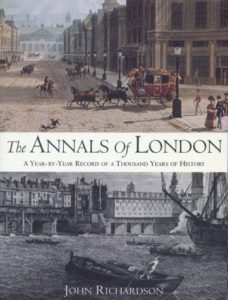
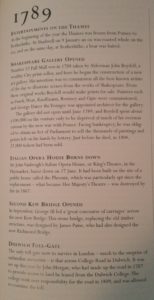
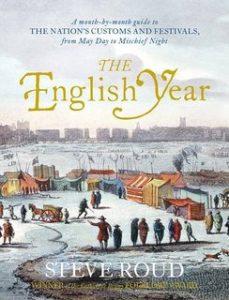
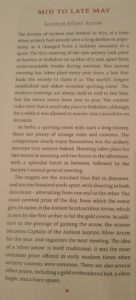
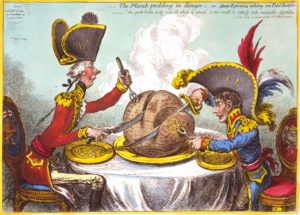
Have you ever used The London Encyclopedia? I found something in there I’ve been dying to use. Some day!
I haven’t. I’ll have to add it to my list!
Oh no ! Not more research resources! They are like crack cocaine to me! I acquired my copy of The English Year after you mentioned it here before. And yes, The London Encyclopedia is another great resource.